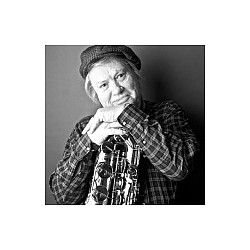Bobby Keys, the long-time saxophone player for The Rolling Stones, has died from cirrhosis of the liver at age 70.
Keys was born in Texas on December 18, 1943 and shares his birthdate with Keith Richards.
Bobby Keys first met the Stones in 1964 and joined the band in the studio in 1969. The first track they worked on together was 'Live With Me' from Let It Bleed. Mick Taylor also joined the band for that record, replacing Brian Jones.
Keys also played for Joe Cocker's Mad Dogs and Englishmen in 1971 and was the sax player on John Lennon's classic 'Whatever Gets You Thru The Night'.
Bobby Keys was a highly sort after session guy. He has played on albums by Barbra Streisand, Ringo Starr, George Harrison, Carly Simon, Dr John, Eric Clapton, BB King, John Hiatt, Nilsson and Warren Zevon.
Bobby Keys played with The Rolling Stones right through to the 14 On Fire tour. He came to Australia in March this year and performed his own shows when the tour was postponed featuring a setlist of songs he had played on during his career including George Harrison 'What Is Life', Joe Cocker 'The Letter' and 'Delta Lady', Lennon's 'Whatever Gets You Thru The Night' and his signature sax piece for the Stones 'Can't You Hear Me Knocking'.
Just prior to the recent Australian Stones shows Keys took ill and could not make the Australian leg of the tour. He was replaced by Karl Denson at the suggestion of Lenny Kravitz.
In a statement posted to Facebook Keith Richards said, ""Another good bye to another good friend. I will miss you, Bobby".
The Stones posted the following statement on Twitter. "The Rolling Stones are devastated by the loss of their very dear friend and legendary saxophone player, Bobby Keys… Bobby made a unique musical contribution to the band since the 1960's. He will be greatly missed".
The Rolling Stones are devastated by the loss of their very dear friend and legendary saxophone player, Bobby Keys... pic.twitter.com/mPWcVddiUr
— The Rolling Stones (@RollingStones) December 2, 2014Bobby made a unique musical contribution to the band since the 1960's. He will be greatly missed. pic.twitter.com/oEb19yGBNQ
— The Rolling Stones (@RollingStones) December 2, 2014More from Noise11.com










